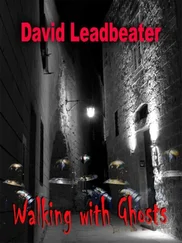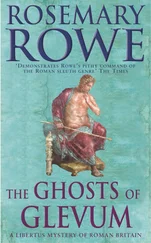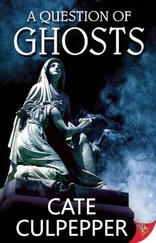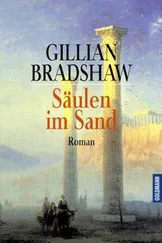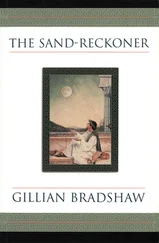Gillian Bradshaw - Island of Ghosts
Здесь есть возможность читать онлайн «Gillian Bradshaw - Island of Ghosts» весь текст электронной книги совершенно бесплатно (целиком полную версию без сокращений). В некоторых случаях можно слушать аудио, скачать через торрент в формате fb2 и присутствует краткое содержание. Жанр: Исторические приключения, на английском языке. Описание произведения, (предисловие) а так же отзывы посетителей доступны на портале библиотеки ЛибКат.
- Название:Island of Ghosts
- Автор:
- Жанр:
- Год:неизвестен
- ISBN:нет данных
- Рейтинг книги:3 / 5. Голосов: 1
-
Избранное:Добавить в избранное
- Отзывы:
-
Ваша оценка:
- 60
- 1
- 2
- 3
- 4
- 5
Island of Ghosts: краткое содержание, описание и аннотация
Предлагаем к чтению аннотацию, описание, краткое содержание или предисловие (зависит от того, что написал сам автор книги «Island of Ghosts»). Если вы не нашли необходимую информацию о книге — напишите в комментариях, мы постараемся отыскать её.
Island of Ghosts — читать онлайн бесплатно полную книгу (весь текст) целиком
Ниже представлен текст книги, разбитый по страницам. Система сохранения места последней прочитанной страницы, позволяет с удобством читать онлайн бесплатно книгу «Island of Ghosts», без необходимости каждый раз заново искать на чём Вы остановились. Поставьте закладку, и сможете в любой момент перейти на страницу, на которой закончили чтение.
Интервал:
Закладка:
“We swore to the emperor that we would fight for him,” I told the Romans. “We did not swear to sleep in tombs. We must already learn to patrol and guard, to stay in one place, to use money. We must learn another language and another way of life. This we can and will do. Flavius Facilis, we can build a palisade, if you want to keep people out of our camp; we can make adjustments. But you must forbear a little.”
They gave in, though Facilis still muttered darkly about latrines, and we parked the wagons in the field, loosed the horses, and settled down into a new life.
The first months we spent in Cilurnum were all I could have hoped for: quiet and monotonous. All my forebodings about trouble in the North seemed utterly misplaced. We could test the shape of our new position with very little to disturb us. The legate had given orders that the men were not to leave the fort-which we interpreted to mean not just the fort itself, but the village and fields attached to it-without the permission of the camp prefect. This was a measure to control us and protect the civilians of the region, but I was glad of it: it gave us a chance to learn the customs of the land before we entered it.
The chief business of the fort was the collection of tolls. Cilurnum was the official crossing point for neighboring people with business on the other side of the Wall, and it also provided the main bridge over the north Tinea River. Every day a trickle of shepherds drove flocks through the gates, and on market days there would be a crowd of carts, all paying their copper to the men on duty to be allowed to cross.
The fort was also responsible for manning six mile-castles-small fortlets that were built every mile along the Wall. The milecastles, in turn, manned the watchtowers, where the sentries could sit watching the sheep on the hills northward. We sent men out to the milecastles for ten days at a time, and rotated them squadron by squadron. The squadrons not on watch were assigned chores about the camp-though these generally did not take up much time, once the work of building a palisade for our camp and digging latrines had been finished. I suggested to Facilis and Comittus that we buy some flocks and herds of our own, which would not only keep us supplied with meat, milk, and woolens, but also give the men something more to do. I was told that Roman soldiers were not allowed to herd or farm the land. Instead, one had to invent work for them-drilling, extra patrols, competitions. It seemed ridiculous to me, but I had to go along with it, if only to keep my dragon from squabbling with the Asturians.
If my men weren’t very busy, I was, and quarrels with the Asturians were the chief thing that occupied me. The Asturians, my troops reckoned, were perfect to quarrel with, much better than Gatalas’ men. Their spears were shorter, they couldn’t shoot, they didn’t wear nearly as much armor, and they weren’t as skillful on horseback as we were: they were opponents who could reliably be beaten. My men were soon swaggering at the very sight of the poor auxiliaries. It was amazing how little Latin they needed to start a fight. And there was trouble, as I’d anticipated, with drink and women-the fort village had a collection of taverns and two brothels. Still, it could have been worse. The Asturians were so clumsy that no one actually needed to kill them, and I was allowed to impose punishments on my followers myself, rather than yield them to the Asturians for floggings and forced marches. I explained to the men that this would change if the Romans thought they were out of control, but even so I had a constant struggle to keep the most imperfect peace. I had to disgrace some of my men by taking back gifts I had given them and bestowing them instead on the Romans they’d injured, and one man I had to dismiss from my bodyguard for provoking trouble.
Longus was better at it than I was. Despite his mournful appearance, he had a keen sense of humor, and he told jokes against himself with a straight face and toneless voice that had his friends roaring. When I was faced with a quarrel, I could only give orders or administer justice: if he got to a quarrel in time, it dissolved in laughter instead of blows. Far from holding a grudge against me for knocking him off his horse the first time we met, he turned the incident into one of his favorite stories: “Next thing I knew, I’d fallen from my mare’s rump like a lump of manure, and Ariantes sticks the spear he did it with next to my neck, chunk! and looks along his sword at me with an expression on his face like he’s considering what bit to chop off first. I thought my last hour had come. Oh gods and goddesses, I thought to myself, get me out of this one and I’ll never say a word against carts again, so help me Epona, goddess of horseflesh. And then he says, very reasonable and soft-spoken, ‘You should not have insulted us,’ and you know? I couldn’t agree with him more; I want to nod, like that, but there’s this sword at my throat, and I’m worried a nod will have consequences, if you take my meaning..”
I learned very quickly to value Longus. In fact, I liked all the men I worked with at Cilurnum, except Facilis, and even he no longer quarreled with me. Comittus had been friendly from the first, and once he’d agreed to take the commandant’s house and leave me in my wagon, we got on well. Bouncy and inexperienced he might have been, but he was able and intelligent underneath it, and understood what the British were thinking far better than the rest of us.
After the first month or so, I sent Eukairios to live in the slaves’ quarters of the commandant’s house, as it was clear from his wistful look every time we left it that he far preferred stone walls to a wagon now that the winter was drawing in. Leimanos was unhappy with this: though he now quite liked the scribe, he still didn’t trust him. “I think he is loyal to you in his own way, my prince,” he told me, “but he’s a slave, with a slave’s courage. If the Romans order him to, he’ll tell them anything he knows.” But I wanted Eukairios to be content in my service. Besides, there were no secrets in the work I gave him: all the letters I had him write were to Romans. He had made an inventory of the goods I’d brought with me in my wagon, and reported that I had enough to buy the goodwill of the administration with plenty left in reserve, so we set out to arrange pay and conditions for the men to my liking, and distributed gold by the handful. In this I relied on Eukairios absolutely. He had an astonishing memory. Our language was his fourth, and he mastered it in only a few months and learned everything there was to know about the northern army at the same time. He knew who were the best officials to write to about what, and how much one should give them to make them friendly. I was satisfied at Cilurnum that autumn, despite the dragon’s quarrels with the ala. But that satisfaction was shattered by Gatalas.
It was a chill, damp day early in December when I heard the news, and we’d had one of the ridiculous competitions. We’d divided into teams, with some Sarmatians and some Asturians on each team in the hope that this would reconcile them to one another, and played a game that involved much cantering about in full armor and the mud, hurling blunted spears-casting javelins was about the only thing the Asturians could do better than us. Now the men had gone off to steam away the mud and cold in the public bathhouse, and the senior officers were doing the same in the commandant’s bathhouse. Comittus and Longus sprawled along the benches; Leimanos, Banadaspos, and one of my captains, the dragon’s priest Kasagos, whom I’d brought with me, sat cross-legged with their eyes half-shut against the heat. (Leimanos and Banadaspos usually came on such occasions, and Kasagos’ squadron had distinguished itself in the game.) Facilis sat off to one side, elbows on knees, squat and silent. He had become the one who was out of place now, an aging foot soldier among the young cavalry officers, and he usually bathed, left, and went home before the rest of us. The exercise had gone well, and we were all tired but pleased.
Читать дальшеИнтервал:
Закладка:
Похожие книги на «Island of Ghosts»
Представляем Вашему вниманию похожие книги на «Island of Ghosts» списком для выбора. Мы отобрали схожую по названию и смыслу литературу в надежде предоставить читателям больше вариантов отыскать новые, интересные, ещё непрочитанные произведения.
Обсуждение, отзывы о книге «Island of Ghosts» и просто собственные мнения читателей. Оставьте ваши комментарии, напишите, что Вы думаете о произведении, его смысле или главных героях. Укажите что конкретно понравилось, а что нет, и почему Вы так считаете.

